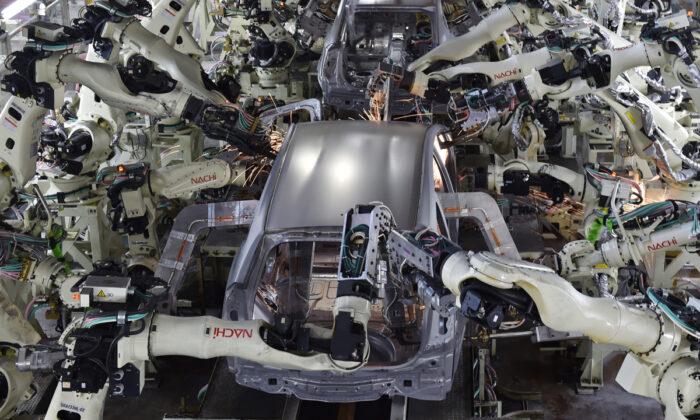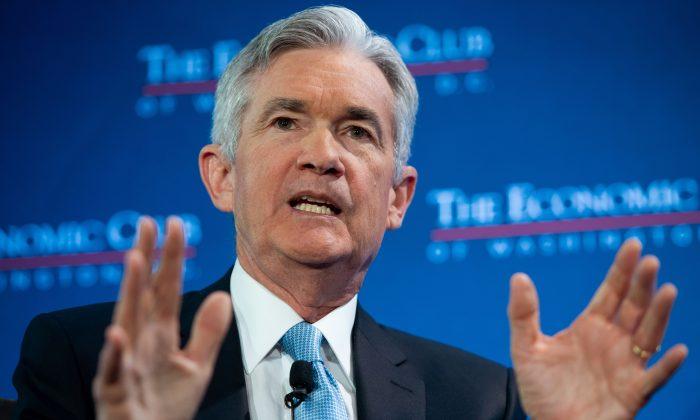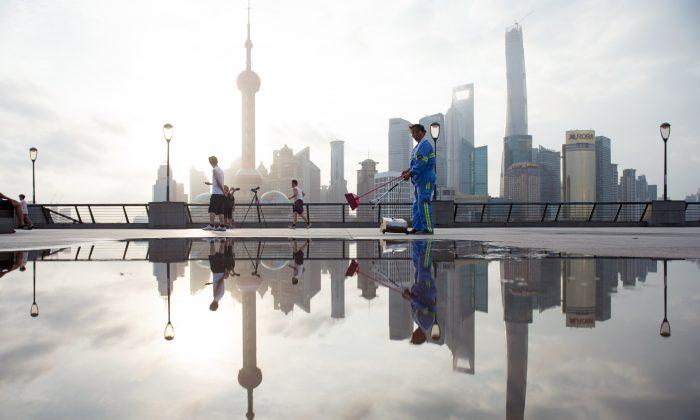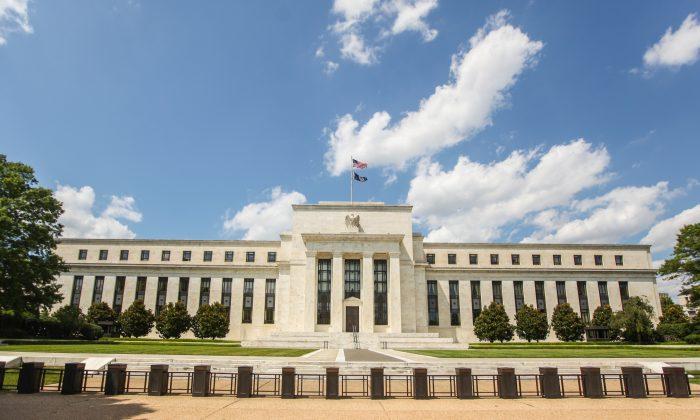How big is China’s bubble?
China appears to be in the late stages of a debt-fueled investment bubble. It’s not that we haven’t seen this before, it’s just we haven’t seen something on this scale.
To give you a few numbers: China’s banking system right now has assets of $27 trillion; the U.S. banking system in total has assets of $15 trillion. Right now China’s banking system has assets worth more than one-third of global GDP.
Going back to the historical record for data we have had there has never been a time when a country has had that kind of heft in global economics ever. Japan never reached it at the peak of its bubble, notwithstanding the fact that that bubble was very large as well.
As we look at what has been propelling China’s growth over the last couple of years it has been expanding banking assets by $2 trillion to $3 trillion. But China’s economy is only $10 trillion. Growth has been declining through official statistics. Peeling back the numbers and looking at activity on the ground whether that’s electricity consumption, the price of iron ore, which is now at a two to three year low, it appears that activity is slowing even further.
It appears there has been a large build up in nonproductive loans and nonproductive assets. That is going to take some time to be digested in the economy.

How will it be digested?
Slower growth, the question is how slow this growth will get. It seems pretty clear the Chinese Communist Party’s leader Xi Jinping realizes the severity of the problem and his tackling corruption right now is trying to get to grips with this problem. It seems that over the last few years this debt fueled investment bubble has helped the elites do very well. We saw this with Zhou Yongkang’s takeover of the oil industry and the fact he was able to accumulate so much wealth.
Reversing China’s economic model means that the people who benefited the most over the last 30 years are now going to suffer relative declines or absolute declines. I believe Xi’s crackdown on corruption is trying to tackle that to be able to box the problem and be able to manage the decline in the economy. Whether you can do this or not still remains a question.
So what are the stats for private debt in China?
In China it looks like it has grown 50 percent over the past five years to almost 200 percent, well in excess of the threshold. You have seen that in Spain in 2008, their private debt to GDP grew by 49 percent in the five years prior to the crisis and we can see what Spain is suffering today.
But the debt has to be paid back either way...
The debt has to be paid back, written off or it has to be digested. What we saw in the context of Japan is the economy did rebalance over the last 20 to 25 years. Consumption as a percent of total GDP has actually increased. It has just increased in the context of no nominal growth. China could conceivably rebalance in the context of 5 to 6 percent nominal GDP growth if consumption grows much more rapidly than investment. The problem is it seems that a lot of consumption is actually tied up in housing and housing-related activity.
Surveys from on the ground China watchers show that in cities where real estate activity has declined a lot of consumption has declined. A lot of consumption is related to items you put inside houses like furniture and appliances. This real estate investment bubble slows what happens to consumption.
What happens if this escalates?
It could get ugly. The question is what happens to the rest of the world. As a percent relative to world GDP, Japan was actually larger at the peak of its bubble than China is today. When Japan slowed people feared the impact on global GDP. But when you think about it this way you see that a country that is a net-exporter is actually importing demand from the rest of the world. If it slows and net exports as a percent of GDP decline, it actually adds to global GDP. So this is not necessarily bad for the world, it is bad for certain countries.
Australia for example has hitched its economic wagon to China and I don’t think it has had a recession since 1991 or 1992. It might suffer and we are actually seeing unemployment pick up in Australia. But for the world in total it’s not necessarily the worst thing.
If it’s importing less aggregate demand from the world in total that is not necessarily bad from a macro point of view although there are winners and losers within that spectrum.
In Europe there'll be winners and losers. Germany has done well exporting capital goods into China and participating in China’s boom. So Germany might do less well.
What can be done?
It seems to me that there is a bifurcation. The state-owned enterprises are remarkably inefficient. And they’ve been the biggest beneficiaries from the credit binge. They have the most access to the state-owned banks, to the bond market. China’s most efficient market is the small- to medium-sized enterprises that are run by entrepreneurs, which are very efficient but also have the least access to credit right now.
I believe that is part of the problem: How do you allocate resources from the state-owned sector with very entrenched power interests to the more productive sector that is more domestic and more consumer orientated that doesn’t have the same kind of access.
Would you recommend investing?
Chinese stocks have been one of the worst performing stock indices since the financial crisis. At some point Chinese stocks are going to be a great buy. Unfortunately, the sort of on the ground due diligence you would need to perform is not something that I could do in Manhattan speaking English.
There are a number of firms that can actually dig through SASIC accounts, who can go on the ground and verify things and I don’t believe I can personally do this. I think at one point China is going to be a great buy, I just don’t know when.
What about the regime’s ability to taper over losses?
The one thing China bulls will tell you is that China has a financial crisis about once a decade and each time China bears will come out and say: It’s over, China is going to crash. But it seems China can get past that.
In the last major crisis at the end of the 1990s I believe NPLs came to a total of one-third of GDP at the time. China was able to unlock a tremendous amount of growth by joining the WTO, getting foreign capital into the market and recapitalizing banks with foreign investors and also by a tremendous tax on consumers through variable interest rates that transferred a lot of money from the consumer to state-owned enterprises through lower interest rates and either implicit or explicit debt relief.
At this point in time, I don’t think there is any one-time thing they can do such as joining the WTO to unlock all this productivity. Their problems are very large relative to foreign capital; they’ve already attracted a lot of foreign money. I am also not sure to what extent they can still use financial repression to recapitalize the system given that they are still using financial repression right now through low rates on deposits.
They have accounting gimmicks and we have seen a number of bubbles blow up. I’m extremely concerned about the bubble but very impressed by Chinese entrepreneurs. But short-term I am very concerned.
Evan Lorenz is an analyst at Grant’s Interest Observer who specializes in China. Prior to joining Grant’s, Evan was vice president at Sheffield Asset Management, a hedge fund based in Chicago.
The interview has been edited for brevity and clarity.





Friends Read Free